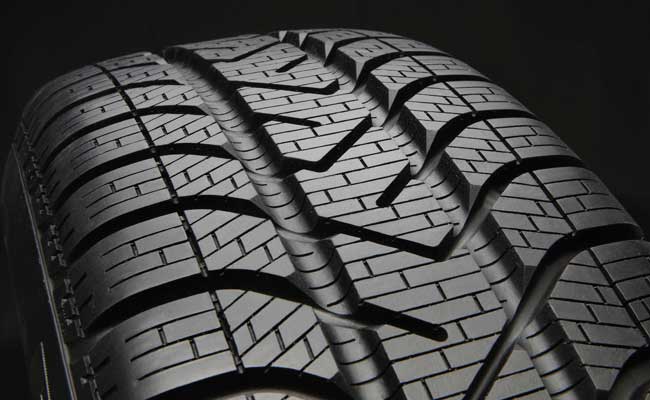With the colder weather closing in there is every need to be especially careful on the roads. Flooded roads, unexpected icy patches or slippery, wet leaves can all make driving conditions precarious. Ensuring that your tyres are in tip top condition can help provide better handling and braking in the event of a problem, but there are plenty of other benefits to keeping an eye on your tyre pressure. With October being Tyre Safety Month Vospers Blog took a look at a few of the reasons to stay on top of your tyres.
These days, making our money go further is important to all of us. When it comes to tyre pressure, you can do this quite literally. According to the Tyre Safety Organisation, if you’re running on tyres at only 80 per cent of their recommended pressure could see you achieving only 75 per cent of their usual lifetime. Not only that, but running your tyres with 20 per cent less pressure than they should have (that is the equivalent of around 6psi) is believed to use 3 per cent more fuel.
As well as cash, safety is a primary concern and, according to statistics from Tyre Safety, around 1100 people were injured in car accidents that were in some part caused by defective or under-inflated tyres. The only reason any of us should need to take tyres seriously.
So what can you do to keep your car tyres in check? Each month, and before any long journey, it is advisable for drivers to check tyre pressure against the vehicle manufacturer’s guidelines which can be found in the handbook or inside of the fuel filler cap. Pressure is best checked when tyres are cold, and, if you’re not sure of how to do this then take advice at your local tyre centre. You should also check all tyres for any nails, bulges or nicks that they may have picked up. All of these are a cause for concern.
It is also important to always check all four tyres, not just one, as problems such as pressure and tread wear may not affect all tyres. Colin Loveless, Rapidfit Manager at Vospers Marsh Mills Plymouth, adds this advice;
“We are happy to check tread if drivers call in to see us, but a simple guide is the 20 pence piece. The band around the coin is 3mm deep so if you place this inside the tread and you can see any of the band, then there is every chance the tyre needs replacing. We would always recommend replacing tyres in axle pairs.”
The team at Rapidfit in Vospers Plymouth replace over 5000 tyres every year and some of the most common issues they find include uneven wear due to under inflation or tracking faults and damage caused by pot holes. It might be Tyre Safety Month in October, but keeping your tyres in good condition is a habit to keep for the rest of your driving life.





